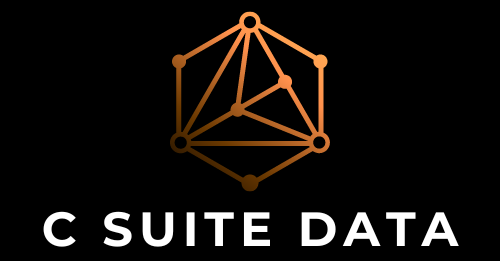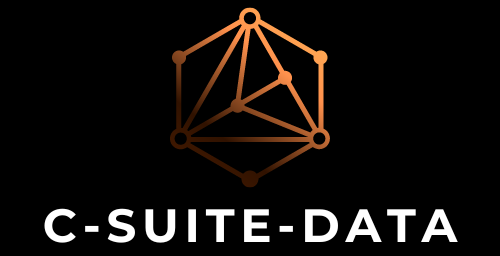Data Ownership
Background
What is Data Ownership?
Data ownership refers to the accountability and responsibility for the control, management, and stewardship of data within an organization. It defines who has the rights, privileges, and obligations to make decisions about how data is collected, stored, processed, shared, and used.
In smaller organizations, these data ownership roles are often combined with data stewardship and governance, however, in larger organizations, the sheer volume of individual tasks, as well as the skills and background of the data owners, as well as the organization structure itself may dictate separation of these roles.
Key aspects of data ownership include:
- Responsibility: Data ownership entails taking responsibility for the management, protection, and integrity of data assets. This includes defining data governance policies (involvement and/or interaction with the data governance board), procedures, and controls to ensure that data is handled in accordance with organizational standards, regulatory requirements, and best practices.
- Control: Data owners have the authority to control access to data and determine who has permission to view, modify, or delete data. They are responsible for establishing access controls, permissions, and security measures to protect sensitive or confidential data from unauthorized access, disclosure, or misuse.
- Stewardship: Data owners provide leadership and definitive instructions to stewards of the data (which may be themselves), ensuring that it is accurate, complete, and reliable for its intended use. This may involve implementing data quality assurance processes, conducting regular audits and validations, and resolving data quality issues or discrepancies as they arise.
- Decision-Making: Data owners make decisions about how data is collected, stored, processed, and used to support business objectives and strategic initiatives. This includes determining data retention policies, data sharing agreements, and data usage guidelines to ensure that data is utilized effectively and responsibly.
- Accountability: Data owners are accountable for the consequences of their decisions regarding data management and usage (the buck stops here). This includes addressing any compliance violations, data breaches, or incidents that may occur and taking appropriate corrective actions to mitigate risks and prevent future occurrences.
- Collaboration: Data ownership often involves collaboration and coordination with other stakeholders, such as data custodians, data stewards, and business users, to ensure that data management practices align with business needs and objectives. This may involve establishing cross-functional teams, committees, or councils to oversee data governance initiatives and foster a culture of data-driven decision-making within the organization.
Symptoms of bad data ownership
- Incessant issues with data, one after another
- Questioning how to get resources for addressing data needs
- Multiple disjoint efforts to move data forward
- Too many ‘temporary shortcut’ approaches to solving issues
- Dissatisfaction amongst users and stewards of data
- Surprise issues from compliance to data quality
What C-Suite-Data does to help with your data ownership
- Help establish governance board / data owner practices
- Help select and mentor appropriate data owners
- Evangelize value and ROI of good data ownership
- Help with Business / IT communications
Need Assistance With Data Quality Strategies?
Contact Us Today
At C-Suite-Data, we are committed to assisting in finding and solving your
data obstacles, leverage your data assets more effectively, and ensure that your data that you rely on is accurate, reliable, and actionable. We can help lead your business to improved decision-making, increased operational efficiency, and better business outcomes.
Where It Affects Your Business
HOW DOES Data Ownership IMPROVE BUSINESS PERFORMANCE?
Data ownership improves business performance in several ways:
- Accountability and Responsibility: Clear data ownership ensures that there are accountable individuals or teams responsible for managing and maintaining data assets. This accountability fosters a culture of responsibility and ensures that data is handled effectively, reducing the risk of errors, inaccuracies, and data quality issues that can impact business performance.
- Data Quality Assurance: Data owners are responsible for ensuring the accuracy, completeness, and reliability of data assets. By implementing data quality assurance processes and standards, data owners can improve the overall quality of data, leading to more reliable insights, reporting, and decision-making, ultimately driving better business performance.
- Data Security and Compliance: Data owners are responsible for implementing security measures and ensuring compliance with regulatory requirements and industry standards. By establishing access controls, encryption protocols, and data protection mechanisms, data owners can mitigate the risk of data breaches and non-compliance, safeguarding sensitive information and protecting the organization's reputation and financial performance.
- Data Governance and Control: Data ownership facilitates effective data governance by defining roles, responsibilities, and decision-making authority for managing data assets. This enables organizations to establish clear policies, procedures, and guidelines for data management, ensuring that data is used consistently and responsibly across the organization, ultimately improving business performance.
- Data Accessibility and Usability: Data owners play a key role in ensuring that data is accessible and usable by authorized users within the organization. By defining access controls, permissions, and data usage policies, data owners can enable employees to access the right data at the right time for their business needs, empowering them to make informed decisions and drive business performance.
- Strategic Data Management: Data ownership facilitates strategic data management by aligning data management practices with business objectives and priorities. By establishing data ownership roles and responsibilities, organizations can prioritize data initiatives, allocate resources effectively, and ensure that data management efforts are aligned with business goals, ultimately driving better business performance.
Questions?
Contact Us
Get all of your data and business related questions answered today!
All Rights Reserved | C-Suite-Data

